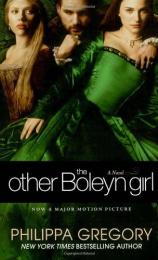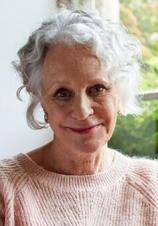Excerpt
Excerpt
The Other Boleyn Girl

Spring 1521
I could hear a roll of muffled drums. But I could see nothing but the lacing on the bodice of the lady standing in front of me, blocking my view of the scaffold. I had been at this court for more than a year and attended hundreds of festivities; but never before one like this.
By stepping to one side a little and craning my neck, I could see the condemned man, accompanied by his priest, walk slowly from the Tower toward the green where the wooden platform was waiting, the block of wood placed center stage, the executioner dressed all ready for work in his shirtsleeves with a black hood over his head. It looked more like a masque than a real event, and I watched it as if it were a court entertainment. The king, seated on his throne, looked distracted, as if he was running through his speech of forgiveness in his head. Behind him stood my husband of one year, William Carey, my brother, George, and my father, Sir Thomas Boleyn, all looking grave. I wriggled my toes inside my silk slippers and wished the king would hurry up and grant clemency so that we could all go to breakfast. I was only thirteen years old, I was always hungry.
The Duke of Buckinghamshire, far away on the scaffold, put off his thick coat. He was close enough kin for me to call him uncle. He had come to my wedding and given me a gilt bracelet. My father told me that he had offended the king a dozen ways: he had royal blood in his veins and he kept too large a retinue of armed men for the comfort of a king not yet wholly secure on his throne; worst of all he was supposed to have said that the king had no son and heir now, could get no son and heir, and that he would likely die without a son to succeed him to the throne.
Such a thought must not be said out loud. The king, the court, the whole country knew that a boy must be born to the queen, and born soon. To suggest otherwise was to take the first step on the path that led to the wooden steps of the scaffold which the duke, my uncle, now climbed, firmly and without fear. A good courtier never refers to any unpalatable truths. The life of a court should always be merry.
Uncle Stafford came to the front of the stage to say his final words. I was too far from him to hear, and in any case I was watching the king, waiting for his cue to step forward and offer the royal pardon. This man standing on the scaffold, in the sunlight of the early morning, had been the king's partner at tennis, his rival on the jousting field, his friend at a hundred bouts of drinking and gambling, they had been comrades since the king was a boy. The king was teaching him a lesson, a powerful public lesson, and then he would forgive him and we could all go to breakfast.
The little faraway figure turned to his confessor. He bowed his head for a blessing and kissed the rosary. He knelt before the block and clasped it in both hands. I wondered what it must
be like, to put one's cheek to the smooth waxed wood, to smell the warm wind coming off the river, to hear, overhead, the cry of seagulls. Even knowing as he did that this was a masque and not the real thing, it must be odd for Uncle to put his head down and know that the executioner was standing behind.
The executioner raised his ax. I looked toward the king. He was leaving his intervention very late. I glanced back at the stage. My uncle, head down, flung wide his arms, a sign of his consent, the signal that the ax could fall. I looked back to the king, he must rise to his feet now. But he still sat, his handsome face grim. And while I was still looking toward him there was another roll of drums, suddenly silenced, and then the thud of the ax, first once, then again and a third time: a sound as domestic as chopping wood. Disbelievingly, I saw the head of my uncle bounce into the straw and a scarlet gush of blood from the strangely stumpy neck. The black-hooded axman put the great stained ax to one side and lifted the head by the thick curly hair, so that we could all see the strange mask-like thing: black with the blindfold from forehead to nose, and the teeth bared in a last defiant grin.
The king rose slowly from his seat and I thought, childishly, "Dear God, how awfully embarrassing this is going to be. He has left it too late. It has all gone wrong. He forgot to speak in time."
But I was wrong. He did not leave it too late, he did not forget. He wanted my uncle to die before the court so that everybody might know that there was only one king, and that was Henry. There could be only one king, and that was Henry. And there would be a son born to this king -- and even to suggest otherwise meant a shameful death.
The court returned quietly to Westminster Palace in three barges, rowed up the river. The men on the riverbank pulled off their hats and kneeled as the royal barge went swiftly past with a flurry of pennants and a glimpse of rich cloth. I was in the second barge with the ladies of the court, the queen's barge. My mother was seated near me. In a rare moment of interest she glanced at me and remarked, "You're very pale, Mary, are you feeling sick?"
"I didn't think he would be executed," I said. "I thought the king would forgive him."
My mother leaned forward so that her mouth was at my ear and no one could have heard us over the creaking of the boat and the beat of the rowers' drum. "Then you are a fool," she said shortly. "And a fool to remark it. Watch and learn, Mary. There is no room for mistakes at court."
Excerpted from The Other Boleyn Girl © Copyright 2001 by Philippa Gregory, Ltd. Reprinted with permission by Scribner. All rights reserved.
The Other Boleyn Girl
- Genres: Fiction, Historical Fiction
- Mass Market Paperback: 752 pages
- Publisher: Pocket Star
- ISBN-10: 1416556532
- ISBN-13: 9781416556534



